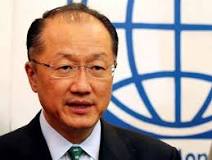The World Bank is collaborating with the Global Covenant of Mayors for Climate & Energy to provide technical assistance and $4.5 billion in funding to help cities around the world better prepare for and respond to the impacts of climate change.
The initiative is coming under the bank’s City Resilience Programmme (CRP) which is designed to assist local governments’ efforts at improving resilience and evolving to the ever-changing impacts of climate change.
Under its latest initiative being implemented in collaboration with the Global Covenant of Mayors for Climate & Energy, the Breton Woods institution’s funding commitment includes an investment of $4.5 billion to ensure 150 cities have the funds to develop and implement initiatives to increase both the sustainability and resilience of cities in their fight against climate change.
Commenting on the plan, the UN Secretary-General’s special envoy for cities and climate change, Michael Bloomberg, said: “Cities are preparing today for the risks of climate change by increasing their resiliency and sustainability – and the World Bank’s financing will help them do more of this work.”
In addition, President of the World Bank Group, Jim Yong Kim, explained: “As the force of natural disasters intensifies, we need to better plan and build more resilient cities.
“We are proud to partner with the Global Covenant of Mayors to do just that. With the World Bank’s investment of $4.5 billion in cities, we can support local leaders to protect people from the impacts of climate change”, Kim added.
It would be recalled that the World Bank recently launched the Global Facility for Disaster Reduction and Recovery (GFDRR) and the Swiss Economic Secretariat (SECO).
Under the umbrella of the CRP, the World Bank has collaborated with the Global Covenant of Mayors for Climate & Energy, which combines the Compact of Mayors and the EU Covenant of Mayors led by Michael Bloomberg, and European Commission Vice President, Maros Sefcovic.
Analysts believe that climate change is intensifying global natural disasters, with more frequent and more severe events expected to occur in the future.
It is against this worrisome backdrop that the World Bank has been working in recent times with numerous global and regional organisations to develop initiatives that improve the resilience of cities and countries against the deleterious impacts of extreme weather and climate-related events.






